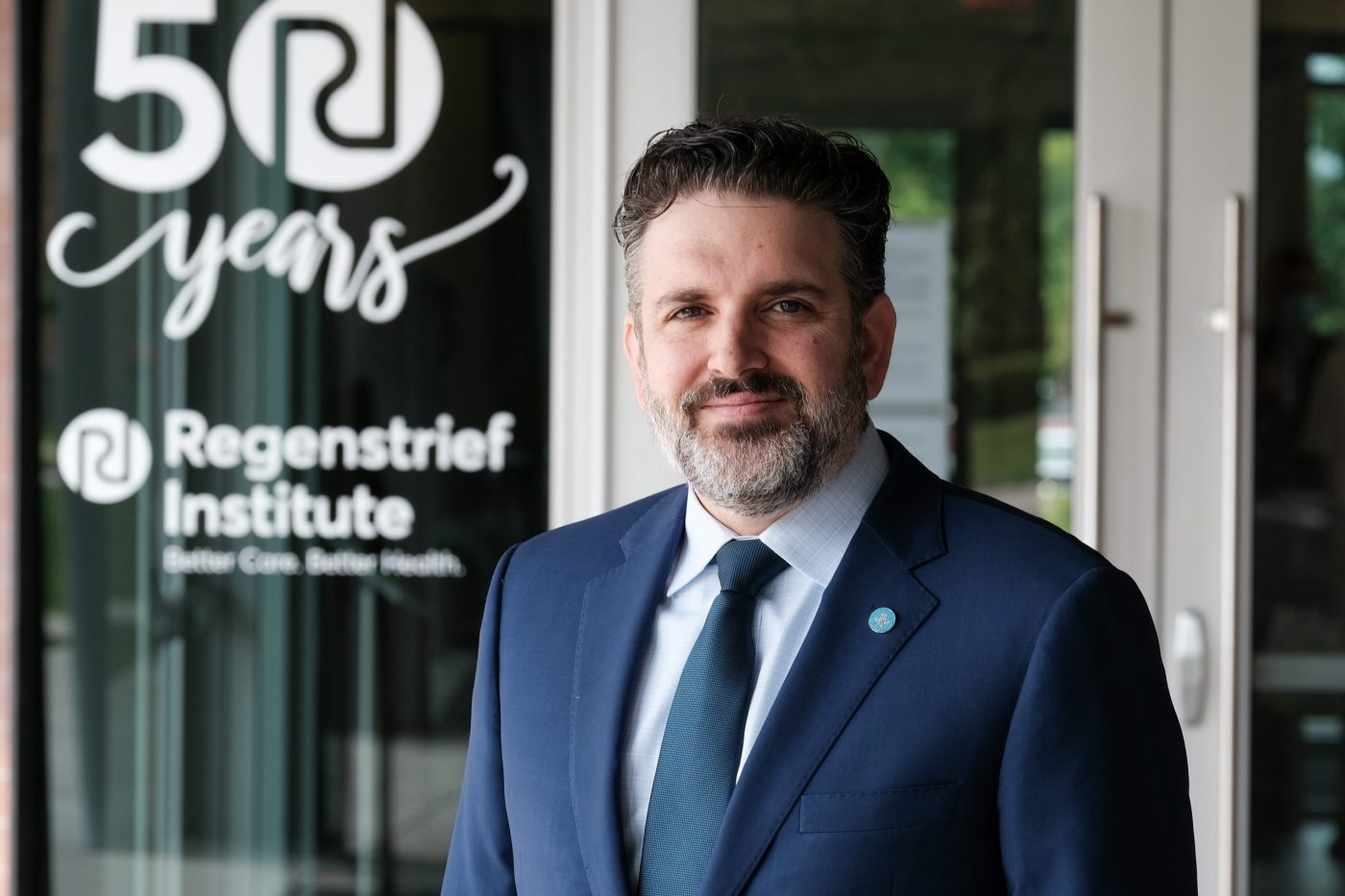Susceptible people should receive a 3-dose vaccine series and a booster
New real-world evidence gathered by the U.S. Centers for Disease Control and Prevention (CDC) shows that COVID-19 vaccines are less effective at protecting against COVID-19-associated hospitalizations in people who are immunocompromised.
In general, immunocompromised individuals are at an increased risk for severe COVID-19 outcomes.
“These findings indicate that while two-doses of mRNA COVID-19 vaccines are beneficial in immunocompromised individuals, they are significantly less protected from severe disease than people with normal immune systems,” said study lead author Peter Embí, M.D., M.S., Regenstrief Institute president and chief executive officer and associate dean for informatics and health services research at the Indiana University School of Medicine. “Since they are less protected after a two-dose series, those who are immunocompromised should receive an additional dose and a booster, take additional precautions like masking when in public, and, if they get infected, they should seek treatment with proven therapies that can protect against progression to severe disease and the need for hospitalization.”
The research team gathered data from more than 89,000 hospitalizations across nine states, making this the largest study of its kind evaluating COVID-19 vaccine effectiveness among immunocompromised people. Data analyses showed that mRNA vaccines (manufactured by Pfizer and Moderna) were 90 percent effective at protecting against COVID-related hospitalization in immunocompetent individuals, whereas they were only 77 percent effective in those with suppressed immunity due to a range of health conditions. The differences were similar across age groups. However, the effectiveness varied greatly among immunocompromised subgroups. For example, it was lower in organ or stem cell transplant patients and better in people with rheumatologic or inflammatory disorders.
The data came from the VISION Network, a collaboration between the CDC and seven organizations with integrated medical, laboratory and vaccination records. The network was established to assess the effectiveness of COVID-19 vaccines. In addition to Regenstrief Institute, other members are Columbia University Irving Medical Center, HealthPartners, Intermountain Healthcare, Kaiser Permanente Northern California, Kaiser Permanente Northwest and University of Colorado.
The paper, “Effectiveness of Two-Dose Vaccination with mRNA COVID-19 Vaccines Against COVID-19-Associated Hospitalizations Among Immunocompromised Adults — nine states, January–September 2021,” is published in the CDC’s Morbidity and Mortality Weekly Report.
Dr. Embí is the first author. Other authors from Regenstrief and IU are Shaun Grannis, M.D., M.S.; Brian Dixon, PhD, MPA; William F. Fadel, PhD and Nimish R. Valvi, DrPH.
Other authors on the paper are Matthew E. Levy, PhD, of Westat; Allison L. Naleway, PhD, of Kaiser Permanente Northwest; Palak Patel, MBBS, of the CDC COVID-19 Response Team; Manjusha Gaglani, MBBS, of Texas A&M University; Karthik Natarajan, PhD, of Columbia University and New York Presbyterian Hospital; Kristin Dascomb, M.D., PhD, of Intermountain Healthcare; Toan C. Ong, PhD, of University of Colorado; Nicola P. Klein, M.D., PhD, of Kaiser Permanente Northern California; I-Chia Liao, MPH, of Texas A&M University; Jungmi Han of Columbia University; Edward Stenehjem, M.D., of Intermountain Healthcare; Margaret M. Dunne, MSc, of Westat; Ned Lewis, MPH, of Kaiser Permanente Northern California; Stephanie A. Irving, MHS, of Kaiser Permanente Northwest; Suchitra Rao, MBBS, of University of Colorado; Charlene McEvoy, M.D., of HealthPartners Institute; Catherine H. Bozio, PhD, of the CDC COVID-19 Response Team; Kempapura Murthy, MBBS, of Texas A&M University; Nancy Grisel, MPP, of Intermountain Healthcare; Duck-Hye Yang, PhD, of Westat; Kristin Goddard, MPH, of Kaiser Permanente Northern California; Anupam B. Kharbanda, M.D., of Children’s Minnesota; Sue Reynolds, PhD, of the CDC COVID-19 Response Team; Chandni Raiyani, MPH, of Intermountain Healthcare; Julie Arndorfer, MPH, of Intermountain Healthcare; Elizabeth A. Rowley, DrPH, of Westate; Bruce Fireman, M.A., of Kaiser Permanente Northern California; Jill Ferdinands, PhD, of the CDC COVID-19 Response Team; Sarah W. Ball, ScD, of Westat; Ousseny Zerbo, PhD. Of Kaiser Permanente Northern California; Eric P. Griggs, MPH, of the CDC COVID-19 Response Team; Patrick K. Mitchell, ScD, of Westate; Rachael M. Porter, MPH, of the CDC COVID-19 Response Team; Salome A. Kiduko, MPH, of Westat; Lenee Blanton, MPH, of the CDC COVID-19 Response Team; Yan Zhuang, PhD of Westat; Andrea Steffens, MPH, of the CDC COVID-19 Response Team; Sarah E. Reese, PhD, of Westat; Natalie Olson, MPH, of the CDC COVID-19 Response Team; Jeremiah Williams, MPH, of the CDC COVID-19 Response Team; Monica Dickerson, MPH, of the CDC COVID-19 Response Team; Meredith McMorrow, M.D. of the CDC COVID-19 Response Team; Stephanie J. Schrag, DPhil, of the CDC COVID-19 Response Team; Jennifer R. Verani, M.D. of the CDC COVID-19 Response Team; Alicia M. Fry, M.D. of the CDC COVID-19 Response Team; Eduardo Azziz-Baumgartner, M.D. of the CDC COVID-19 Response Team; Michelle A. Barron, M.D., of the University of Colorado; Mark G. Thompson, PhD, of the CDC COVID-19 Response Team and Malini B. DeSilva, M.D. of HealthPartners Institute.
About Regenstrief Institute
Founded in 1969 in Indianapolis, the Regenstrief Institute is a local, national and global leader dedicated to a world where better information empowers people to end disease and realize true health. A key research partner to Indiana University, Regenstrief and its research scientists are responsible for a growing number of major healthcare innovations and studies. Examples range from the development of global health information technology standards that enable the use and interoperability of electronic health records to improving patient-physician communications, to creating models of care that inform practice and improve the lives of patients around the globe.
Sam Regenstrief, a nationally successful entrepreneur from Connersville, Indiana, founded the institute with the goal of making healthcare more efficient and accessible for everyone. His vision continues to guide the institute’s research mission.
About IU School of Medicine
IU School of Medicine is the largest medical school in the U.S. and is annually ranked among the top medical schools in the nation by U.S. News & World Report. The school offers high-quality medical education, access to leading medical research and rich campus life in nine Indiana cities, including rural and urban locations consistently recognized for livability.
About Peter Embí, M.D., M.S.
In addition to serving as the president and CEO of Regenstrief Institute, Peter Embí, M.D., M.S. is the Leonard Betley Professor of Medicine and associate dean for informatics and health services research at Indiana University School of Medicine, associate director of informatics with Indiana Clinical and Translational Sciences Institute and vice president for Learning Health Systems with Indiana University Health.








